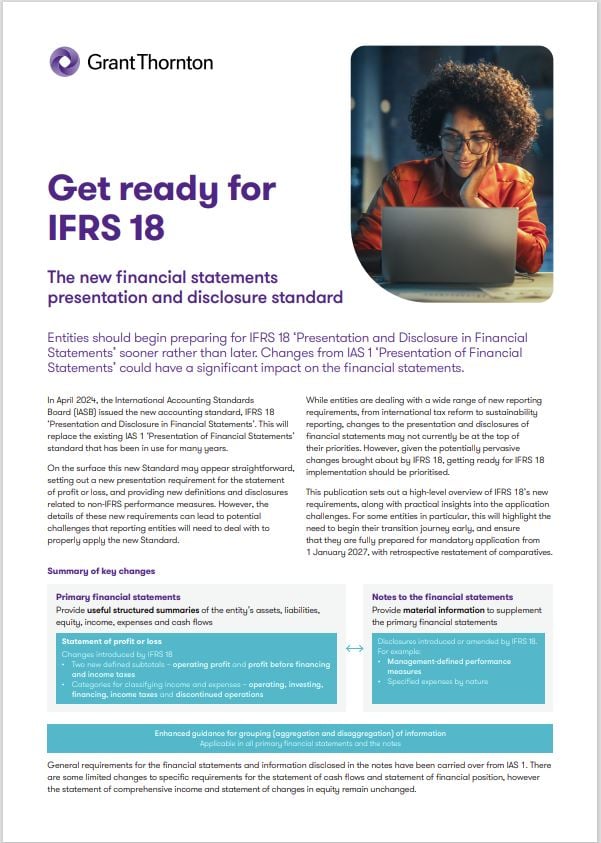
The International Accounting Standards Board (IASB) has introduced IFRS 18, Presentation and Disclosure in Financial Statements, which replaces IAS 1, aiming to improve communication and comparability in financial statements.
Effective for reporting periods beginning on or after 1 January 2027, IFRS 18 introduces substantial changes, particularly in the statement of profit or loss, to address the lack of detailed guidance in the previous standard.

Download Get ready for IFRS 18
This publication sets out a high-level overview of IFRS 18’s new requirements, along with practical insights into the application challenges.
Key changes under IFRS 18
1. New defined subtotals
-
- Operating profit
- Profit before financing and income taxes
These changes enhance consistency, enabling better comparability between entities.
2. Category-based classification
All income and expenses are classified into five categories:
-
- Operating
- Investing
- Financing
- Income taxes
- Discontinued operations
For example, foreign exchange differences are categorised based on the underlying transactions they relate to, simplifying financial analysis.
3. Enhanced note disclosures
Entities must disclose management-defined performance measures and adhere to new aggregation and disaggregation rules for more meaningful data presentation.
4. Special provisions for key business activities
Businesses like investment firms and banks may require tailored classifications for better alignment with their operational realities.
5. Transition and implementation
The effective date allows entities to adapt their systems and processes. However, early adoption is permitted.
Implications for Singapore businesses
For Singapore entities, adopting IFRS 18 will demand changes in financial reporting processes, including system upgrades and training for preparers and auditors. Early preparation is crucial to manage the transition effectively and leverage the improved transparency for stakeholders.
Next steps
Grant Thornton Singapore is committed to helping businesses navigate the adoption of IFRS 18. Gain insights into how these changes will impact your reporting obligations. Reach out to our team for workshops, technical guides, and tailored advisory services.




